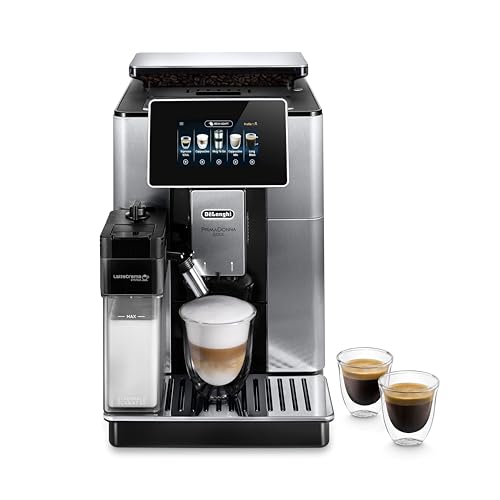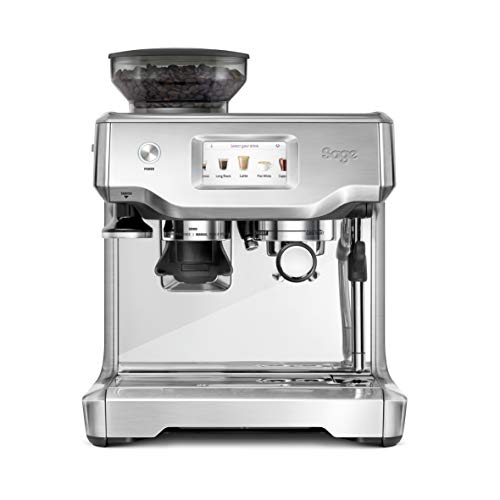10 Wrong Answers To Common Beans To Coffee Machine Questions: Do You K…
 Beans to Cup Coffee Machine
Beans to Cup Coffee MachineWith their convenience with quality, flexibility and convenience, bean to cup machines are great for those who prefer milk-based coffee styles like cappuccinos, lattes or flat whites. They can reduce the amount of coffee you purchase and boost the productivity and satisfaction of staff.
 These commercial coffee machines are fully automated, allowing users to choose and enjoy their favorite beverage by pressing one button. They still require regular cleaning and descaling in order to keep them functioning at their peak.
These commercial coffee machines are fully automated, allowing users to choose and enjoy their favorite beverage by pressing one button. They still require regular cleaning and descaling in order to keep them functioning at their peak.The grinder
The coffee grinder is a piece of equipment used to grind whole beans into coffee that can be brewed. Modern bean-to-cup machines come with a built-in grinder, which can help you save time and effort, not to mention the hassle of preparing the beans before making the coffee. The grinder is either a burr or blade type. The majority of them offer different grind settings for different methods of brewing. The art of choosing the right grind setting can be a struggle. Too coarse a grinding could result in a bitter cup, while too fine a grind might not get the full flavor.
The primary reason to use grinders is that you will get an enhanced, fresher and more flavorful coffee. Coffee that has been grind and brewed earlier loses its natural taste and aroma because the oils are exposed to air. This is the reason why many coffee enthusiasts swear by freshly ground beans as the only way to have the best cup of joe.
Some people are also concerned that coffee beans that have been ground prior to purchase have a greater chance of becoming stale. This could dull the flavor and make it more bitter. Therefore, the majority of people opt to purchase an electric grinder for their home coffee maker instead of purchasing pre-ground coffee bags.
It's possible to make use of a food processor to grind your own beans, however the motors they use aren't built to work with tough ingredients like coffee beans and they're not able to create consistent grind sizes. You can also use a mortar and pestle. The grinding process is quite lengthy and you could end up over-grinding some beans. This could affect the quality and consistency of your beverage.
Automatic grinders have a hopper that you can fill with the right amount of beans needed for your brew, and operate at the push of one or two buttons. Some have a visual prompt to show when the bin needs emptying, as it's important to only keep coffee ground in the grinder the amount of time you require it.
The unit for brewing
The brewing unit is responsible for compacting ground coffee into a ball that water can push through. The resulting cup of coffee then gets served from the coffee dispenser. The brewing unit is a complex piece of machinery that ensures the best results each time you use the machine. Cleaning the brewing unit is crucial to avoid jamming or other issues. Fortunately, the majority of bean-to-cup equipment have a built-in water system that makes cleaning the brewing unit easier than ever before.
The majority of coffee machines can make multiple types of beverages, including cappuccinos and lattes. These features allow you to tailor your drink to your specific taste and preferences. Some have a touchscreen displays that allow you to make adjustments in a flash. These options can save you a lot of time and money.
To stop the brewing unit from causing jamming, the present invention includes a valve assembly placed between the chamber for brewing and the beverage outlet. The valve assembly is movable against the force of springs between a first position, in which the valve body member doesn't close the seat but leaves at least a minimum gap in between, and a second, in which the valve body member completely closes the seat. This mechanism can be used in automatic coffee machines for home and office use, as well as in food-service sites or so called HoReCa (Hotel-Restaurant-Cafe) sites or in public areas.
When the unit is in stand-by mode, the second piston 6, which is connected to the first piston 5, stands separate from the surface of the delivery outlet to ensure that the valve assembly 13 is not subjected to adhesion of hard residues to the surface of the delivery outlet. The coffee beverages that exit the brewing unit clean the valve body and the delivery outlet surfaces of soft residues.
During a preparation cycle the second piston 6 is moved back to its initial position by means of the extended resilient elements and, in this position, a dose of coffee powder can be dropped into the brewing chamber. A moveable wall located at the end of the first piston then pushed against the coffee powder in the brewing chamber and compressed.
The water system
Bean-to-cup machines are great for those who appreciate the taste of a cup of coffee bean coffee machine but do not want to hassle with grinding and tamping. They brew a shot of espresso using hot water, creating an incredibly dark, rich coffee. Some models come with a milk dispenser, so you can add steamed or foamed milk, if you want. This can be manual or automated, based on the model you select.
One of the biggest advantages of a machine that is bean to cup coffee machines review-to-cup is that they make use of fresh whole beans, which are grinded right before the brewing. This preserves the taste of the beans and provides you a better cup of coffee. This is unlike other machines that use pre-ground coffee that goes in a shorter time and loses flavour after being ground once.
The water system in a bean-to-cup maker includes a tank, heating unit and pump. The tank stores the water used in making coffee, and it's crucial to keep the tank clean and filled with fresh water for best results. The heating unit is in charge of getting the water to the proper temperature for brewing, while the pump maintains the pressure throughout the process. Certain bean to cup espressomaschine-to-cup equipments have an inbuilt water filter to stop scaling and keep the coffee tasting fresh.
The control panel controls all processes and settings on a bean to cup machine. This is where you set how strong, how sweet or how much milk your coffee needs and what is a bean to cup coffee machine kind of brew you want. Many models offer programmable features to make it faster and easier to enjoy your coffee of choice every time.
It is more environmentally friendly because it doesn't need paper filters or plastic cups. In addition, bean-to-cup machines are a great investment for businesses, reducing unnecessary coffee purchases and ensuring that employees and customers can access high-quality coffee at the click of the button.
The control panel
A bean-to-cup machine is a special appliance that eases the process of making an ice-cold cup of fresh delicious coffee. These machines combine brewing, grinding, and serving into one unit and provide a variety of adjustable settings for each drink. By grinding whole beans immediately before brewing, they ensure that the full flavor and aroma is retained. They also have many options and features, including adjustable settings like the size of the grind and temperature.
Bean-to-cup coffee machines are available in a range of prices, ranging from low-cost models to those made for commercial use. Whatever the price, all coffee makers have a few essential components that be in sync to create the best cup of coffee. Knowing these components can aid consumers in making informed choices in selecting a coffee maker for home or office.
The control panel is an integral part of every coffee maker and controls the way the machine functions. The control panel lets you can select the kind of coffee you want to use and adjust the strength. A lot of coffee makers have touchscreens or digital displays that make it simple to navigate through the options. Some of the more expensive coffee makers could come with programmable recipes to allow you to customize the experience.
The indicator for brewing is another important feature of the control panel. It will inform you what the brewing process is doing and if the machine requires to be reset. It will also inform you whether the machine is experiencing an error, like an empty water tank or a lack of beans.
The control panel is the core of the bean to cup coffee machine and provides you with a variety of features. The most basic machines come with simple manual controls, whereas more advanced models offer customizable recipes and smartphone app integration. Some bean to cup offers-to-cup machines include automatic milk texturizing systems for a professional-quality cappuccino or the latte. Some models offer a range of coffee strengths, including mild, medium, or strong. Some models also come with a coffee filter that can be reused, which eliminates the need for disposable filters.



